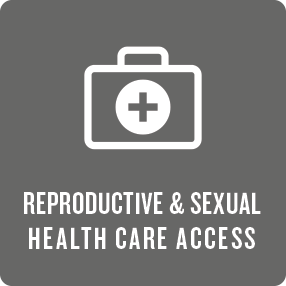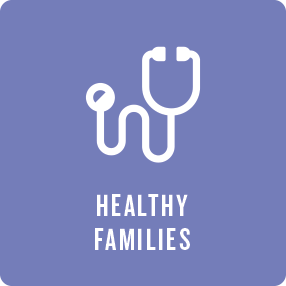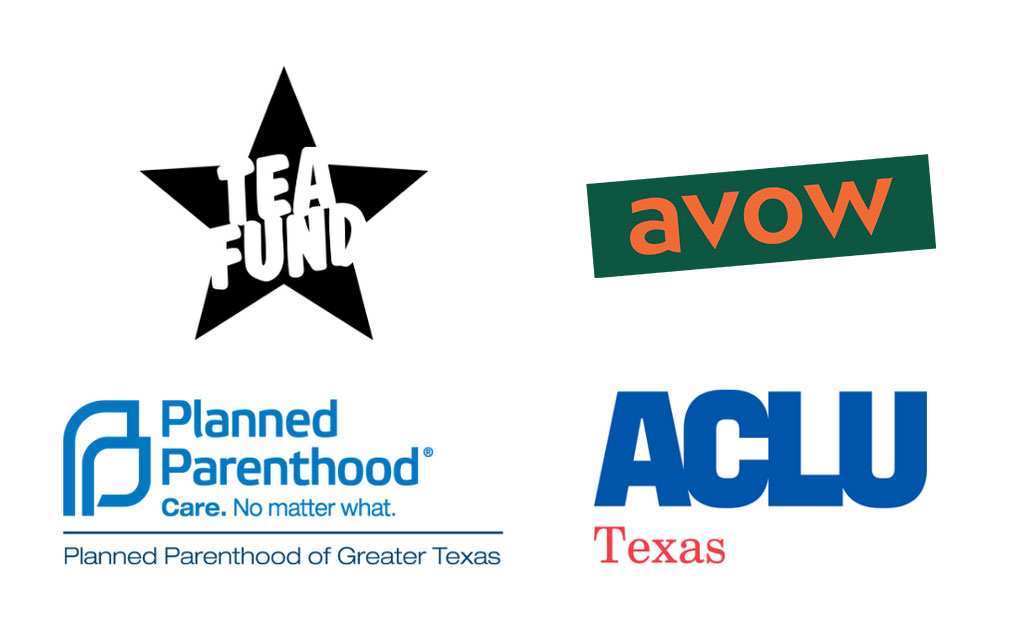Tired of playing defense with your reproductive rights? Repro Power Dallas is calling on The Dallas County Commissioners Court to proactively champion abortion access in Dallas County.
Join us by writing an email to your County Commissioner asking them to support access to abortion!
https://prochoicetexas.org/dallas-county-support-abortion-access/
If you’ve already filled out the email form — great! Thank you. Here are a few other ways to get involved with Repro Power Dallas:
- Host letter-writing parties where we can walk you and your invitees through the process of writing personalized emails to your county commissioners asking that they proactively expand abortion access.
- Host (virtual) house parties where you can spread information about Repro Power Dallas and plug your network into ways to get involved with protecting reproductive justice here in Dallas.
- Follow us on Instagram at @ReproPowerDallas to stay up-to-date on our actions and campaigns.
A Reproductive Justice Agenda for Dallas County
A joint project of Texas Equal Access Fund, Avow Texas, Planned Parenthood of Greater Texas, and the ACLU of Texas.
We believe the people of Dallas County deserve access to safe, timely, and affordable health care, including reproductive health care such as abortion, as well as the ability to live their lives and care for their families in safety regardless of gender, race, ability, sexual orientation, economic status, zip code, religion or immigration status.
This agenda provides the people of Dallas with a vision for a city that provides for their health and well-being. By signing onto the agenda, you show your support for reproductive justice policies for the county.
Sign on to show your support of this agenda.
Why Should Dallas County Adopt a Reproductive Justice Agenda?
Dallas County should take necessary steps to ensure that all people are able to access safe, timely, and affordable reproductive health care services — including abortion. Access to these services should be free from stigma, violence, and harassment. The Dallas community deserves targeted programs to support reproductive health care access, and such programs should be properly funded and implemented, with sufficient enforcement and adequate resources.
Because Dallas County and the City of Dallas are responsible for public health and safety, the Dallas Repro Power Agenda partners believe that it is imperative that the County and City adopt a reproductive justice agenda to ensure that residents are living in communities where health and safety are supported in equitable ways. If people are going to feel supported in making the reproductive decisions they feel are best for themselves, we must create true justice.
The key to healthy and safe people, families, and communities is to adopt policies regarding family planning, abortion access, health care access, sexuality education, discrimination, policing, immigration, and housing that are truly comprehensive and recognize bodily autonomy and individual decision-making power.
Texas has the largest number of uninsured people in the nation. About 18 percent of Texas residents do not have health care coverage. As of 2016, close to 20 percent of the residents of the City of Dallas were uninsured. Beyond a lack of health care coverage, there are other barriers to healthcare access. There are approximately 1.7 million undocumented immigrants in Texas, and 16 percent of those live in Dallas County. Undocumented people experience a variety of barriers when attempting to access health care, including the fear of deportation. A lack of public funding for abortion creates a barrier between those on Medicaid and other forms of federal health insurance and access to a truly comprehensive set of health care options. Research has shown that Texas has a higher premature birth rate than the national average, and that the rate is twice as high for babies born to Black women than it is for babies born to white women or Latinas. People of color disproportionately face barriers to all forms of health care and are at greater risk of negative consequences from policies such as bans on public funding for abortion or lack of access to insurance coverage.
In Texas, the state of reproductive health care access is in bad shape. Statewide family planning budget cuts, the unwillingness of state officials to expand Medicaid coverage or create a statewide insurance exchange, and unnecessary restrictions on abortion providers have devastated Dallas County residents’ ability to access comprehensive health care. Rates of unintended teen pregnancy and sexually transmitted infections (STIs) illustrate a need for age-appropriate, fact-based sexual health education.
In order to achieve true reproductive justice in our city and county, all Dallas residents must be able to live and raise families in communities that are safe. Currently, incidents of police brutality and unjust law enforcement practices have caused tension within communities of color, immigrant communities, the LGBTQ+ community, and the Muslim community. Additionally, housing discrimination in Dallas County for those seeking low-income housing has been acknowledged by the Supreme Court of the United States. Addressing housing, safety, and access to public services, in addition to healthcare access, is necessary to ensure reproductive equity.
There are policies that Dallas County can adopt that will help improve access to health care, economic security for families, safety, and fair housing for all.
Back to Top | Next
Reproductive and Sexual Health Care Access as a Public Health Imperative – en
Reproductive and Sexual Health Care Access as a Public Health Imperative
Dallas County is responsible for overseeing the public health needs of those living within the County. Public health concerns include access to services that can prevent serious health problems and contribute to community health overall. It also includes access to reproductive and sexual health care, including menstrual products and family planning services such as contraception and abortion. Reproductive health care is often treated as specialty health care that only affects a segment of the population, but the truth is that access to a full spectrum of reproductive health care, including abortion, contributes to the health of entire families and communities.
All restrictions on access to reproductive health care hurt Dallas County families. Dallas County residents should be treated justly, with fairness, respect, compassion, and dignity, regardless of income, gender identity, sexual orientation, immigration status, ability, age, zip code, religion, or any other factor.
- Dallas County and the City of Dallas should ensure access to abortion clinics and funding for practical support. The Dallas County Commissioner’s Court and the Dallas County Health and Human Services should work to expand access to abortion in Dallas County. Dallas City Council should also act to approve an Abortion Access Amendment that would provide funding for practical support for abortion, including coverage of travel, lodging and childcare. Additionally, City Council should formally call for a repeal of bans on insurance coverage for abortion by passing a Rosie’s Resolution.
- Dallas County should regulate crisis pregnancy centers (CPCs). CPCs spread false information and medically inaccurate services. They market themselves as “pregnancy resource centers,” but in reality exist to spread false and stigmatizing information about abortion to patients who walk through their doors. Dallas City Council should pass a bill regulating CPCs that would require them to post signs disclosing whether they have a licensed medical provider on staff (as many do not), and whether they provide or refer for prenatal care, emergency contraception, and abortion.
- All Dallas County residents should have access to emergency contraception. Emergency contraception, such as Plan B, is a safe form of contraception. It should be available, affordable, and easily accessible to those who need it. The County Commissioner’s Court should work to ensure that all County health care facilities that treat Texans after sexual assault inform them about emergency contraception as part of this care and provide emergency contraception upon request. The County Commissioner’s Court should work with the Department of Health and Human Services to create programs promoting public awareness about emergency contraception and take steps to encourage all health care providers to inform their patients about emergency contraception. Lastly, all publicly funded health care facilities should provide emergency contraception free of charge or on a sliding fee schedule.
- Funding for abortion care should be available at county hospitals for low-income people who are residents of Dallas County. No one should be denied access to safe abortion care services just because they can’t afford to pay. Dallas County should act to provide funding for abortions or absorb the cost of the procedure that falls beyond what patients can pay. Dallas County Health and Human Services, in conjunction with nonprofits currently providing financial assistance to Dallas County residents in need of abortion care, should conduct research to develop a strategy to ensure that low-income Dallas County residents are able to secure adequate funding for safe abortion care in Dallas County.
- All Dallas County residents should have access to menstrual products. Menstrual products are necessities, not luxuries. The financial inaccessibility of period products has serious repercussions for menstruating individuals, including: physical health risks, social and psychological effects, and, for students, educational fallout. Dallas County should act to provide free pads and tampons in all County buildings, and should publicly denounce the luxury tax on period products in Texas.
Previous | Next
Everyone in Dallas County should have the opportunity to raise their families in a healthy and safe environment. Dallas County should pass and enforce policies that allow for families to thrive by protecting access to health care, ensuring that new parents have job protections and addressing discrimination in public places, housing, and the workforce.
- Dallas County should expand its nondiscrimination policy for county workers to include gender identity, sexual orientation, religion, marital status, and veteran status. Currently, the Dallas County Human Resources policy protects county workers on the basis of color, national origin, sex, age, or disability. We believe that to achieve true equity for all, these protections should be expanded to include some of the most marginalized in our community. By doing so, the County sets an example for municipalities in Dallas County, as well as for the rest of the state.
- Dallas County residents should be able to access health care before, during, and after pregnancy. Dallas County Health and Human Services should ensure that all low-income Dallas residents have access to comprehensive prenatal and postpartum care.
- All Dallas County residents should have access to family planning, prenatal care, and other basic health care services regardless of financial or immigration status. Because our state has refused to expand Medicaid coverage, the appallingly high uninsured rate in Texas ranks first in the nation. And, as of 2017, the uninsured rate in Dallas County is even higher than the state average. Dallas County should make free or low-cost health care services available to all who cannot access insurance on the federal health exchange or other means, as well as to undocumented immigrants. Undocumented immigrants should be able to access health care without fear of their status being reported to the authorities.
Previous | Next
Supporting Teens and Young Parents – en
Supporting Teens and Young Parents
Texas has one of the highest teen birth rates and the highest repeat teen birth rate in the United States, owing in large part to the lack of comprehensive sexuality education in most Texas schools. Research shows that comprehensive, age-appropriate sex education provides young people with the tools to protect themselves from unintended pregnancy and HIV/STI-related risk behaviors. Despite Texas having one of the highest teen birth rates in the United States, the state provides little support to teen parents who struggle to navigate the balance of raising a child and pursuing an education. Pregnant and parenting students need support and respect in order to succeed in school and graduate.
- All Dallas County school districts should provide evidence-based sex education from middle school through high school. Middle school students should receive tailored, age-appropriate sex education, and all Dallas-area public schools should offer free contraception for students.
- Dallas County school districts should empower pregnant and parenting students by providing excused absences and medical leave (protected under Title IX), childcare, breastfeeding and pumping rooms, staff training on providing nonjudgmental support, and information about resources for young families.
- Dallas County Commissioner’s Court should pass a resolution strongly condemning HB 3994, which has made abortion inaccessible for many Dallas County teens. HB 3994, which was passed by the Texas Legislature in 2015, created several onerous restrictions on judicial bypass, a court procedure designed to protect abused and neglected pregnant minors considering abortion.
Previous | Next
Safe Environments for All Families – en
Safe Environments for All Families
Reproductive justice is about ensuring that all people, regardless of race, immigration, ability, sexual orientation, gender, religion, economic status, or any other factor, can raise families in communities that are safe. For communities of color and immigrant communities a major concern is safety and protection from police brutality. Instances of police brutality create tension between police and the communities they should be serving and protecting, and often they highlight racial bias in our criminal justice system.
Immigrant communities in Dallas also live in constant fear of deportation. North Texas leads the nation in ICE arrests. The threat of deportation and family separation impedes people’s ability to safely move about their own communities. These threats have become heightened due to the current presidential administration’s emboldenment of ICE, leading to frequent ICE raids and arrests in the Dallas area, and a partnership between ICE and Dallas County allowing ICE detainers in our local jails.
Finally, unfair housing practices cause Dallas to be one of the most racially segregated communities in the United States. Dallas County should administer its housing programs in a way that affirmatively furthers fair housing and dismantles the region’s long history of racial and ethnic segregation.
The Dallas Repro Power agenda acknowledges that this list is not exhaustive; there are countless factors that go into creating safe environments. We stand in support of all initiatives to make Dallas County communities safer, more sustainable, and more equitable for our families and residents.
Previous | Next
Show your support for the Repro Power Dallas Policy Agenda! Fill out this form, and we’ll add you to the list of supporters on the website.







